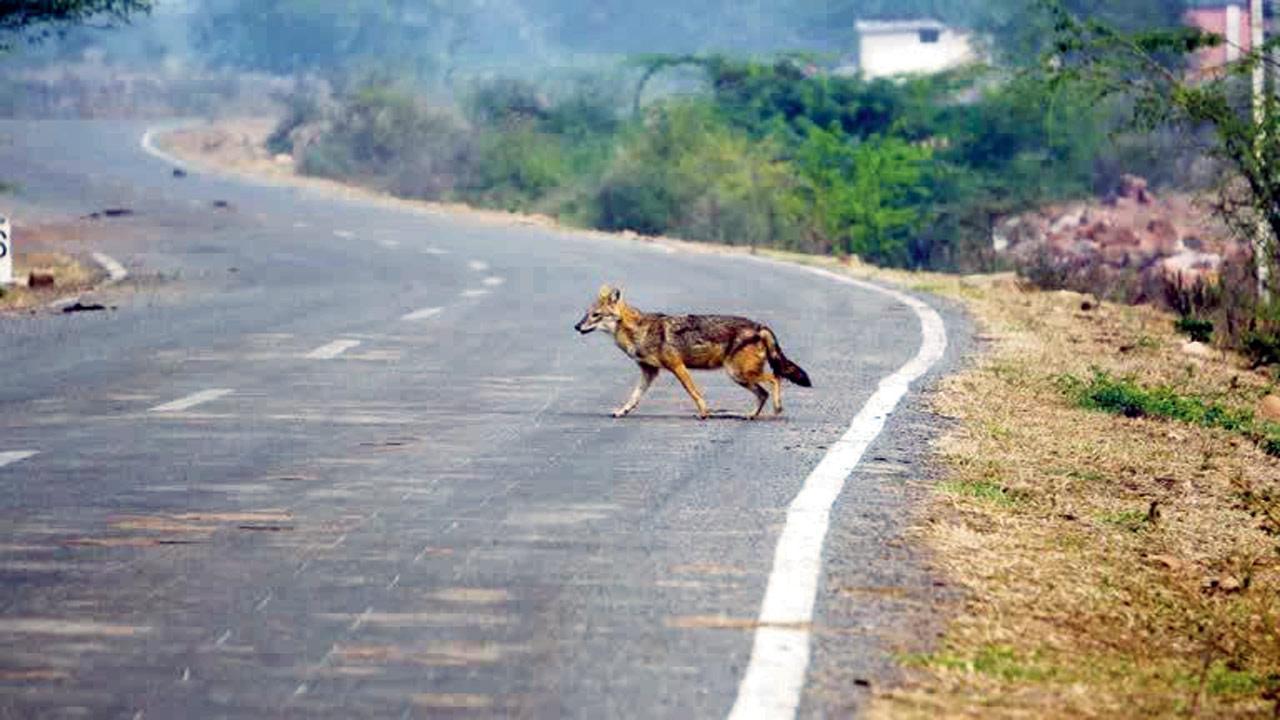Lab reports confirm animal that died recently was infected

Jackals living close to the city are also prone to highway accidents. Representation pic/istock
The jackal which died recently in Mumbai tested positive for rabies infection, making this incident probably the first case of a rabies-infected death of wildlife in Mumbai. Additional Principal Chief Conservator of Forests (APCCF), Wildlife West, Dr V Clement Ben, said, “The samples from the dead jackal that were sent to the Mumbai Veterinary College lab have tested positive for rabies. This is a serious issue and the Mangroves Cell and Thane Forest Department (territorial) are advised to take all the needful measures to prevent further deaths of Jackals.”
On Monday (October 28), mid-day carried a story ‘Forest dept to investigate the rise in jackal deaths in Chembur’ which highlighted how in a concerning series of events, five jackals had died in the Trombay-Chembur belt over the past month, prompting investigations by the forest department. While the reason behind their deaths is unknown, sources from the forest department told mid-day that the sick jackals that were rescued showed behaviours indicative of a potential rabies infection.
On Monday, Sanjay Gandhi National Park (SGNP) authorities had sent the brain samples of the dead jackal to the Mumbai Veterinary College lab for tests. Sources from the forest department told mid-day that the lab informed the forest department officials on Tuesday morning that the reports were positive for rabies infection.
On October 13, the forest department received a call from the Trombay-Chembur area about a sick jackal, which was later jointly rescued by RAWW. The animal died the same night. On October 21, a sick jackal was rescued from the Trombay-Chembur area close to Anushakti Nagar, and it died the same night. Similarly, on October 25, two sick jackals were rescued; one died on arrival, while the other succumbed the following day.
Sources from the forest department said that the jackals which were found to be sick/dead were rescued from the mangrove belt in the Trombay-Chembur area. The Mumbai Metropolitan Region (MMR) has a healthy population of jackals. However, they face major threats like habitat destruction, feral dogs and road accidents.
The animals have been surviving a secretive life in the mangroves of major cities like Mumbai, Navi Mumbai and Thane. Their habitat needs to be studied and understood in detail so that we have a better understanding of them to help in conservation efforts. The jackals here have been observed both scavenging and hunting and have a very interesting diet and prey base which also needs to be understood.
There are huge mangrove forest patches in MMR, including portions of the Thane Creek Flamingo Sanctuary, Bhandup Pumping Station, Charkop, Versova, Vasai, Bhayander and Ghodbunder Road. While there have been many sightings of jackals at these locations, no proper study has been carried out and so the Mangrove Foundation has also started a population estimation study of the golden jackal in mangrove forests in and around Mumbai.
In the past, there have been several human-jackal conflict incidents; there have also been instances where the jackals have been rescued from human settlements close to mangrove forests in Mulund and Vikhroli. The ongoing research might also help gain an understanding of their diet and activity patterns and the threats they face.
Golden jackals are native to the Indian subcontinent and play a very important role in forest ecology. They are omnivorous in nature and feed on a variety of small mammals, birds, fish, rabbits and even fruit. Unfortunately, golden jackals are frequent victims of hunting, wildlife trafficking, man-animal conflict and highway accidents. This species is protected under Schedule I of the Wildlife Protection Act of 1972 and has an estimated population of 80,000 in the wild.
 Subscribe today by clicking the link and stay updated with the latest news!" Click here!
Subscribe today by clicking the link and stay updated with the latest news!" Click here!










